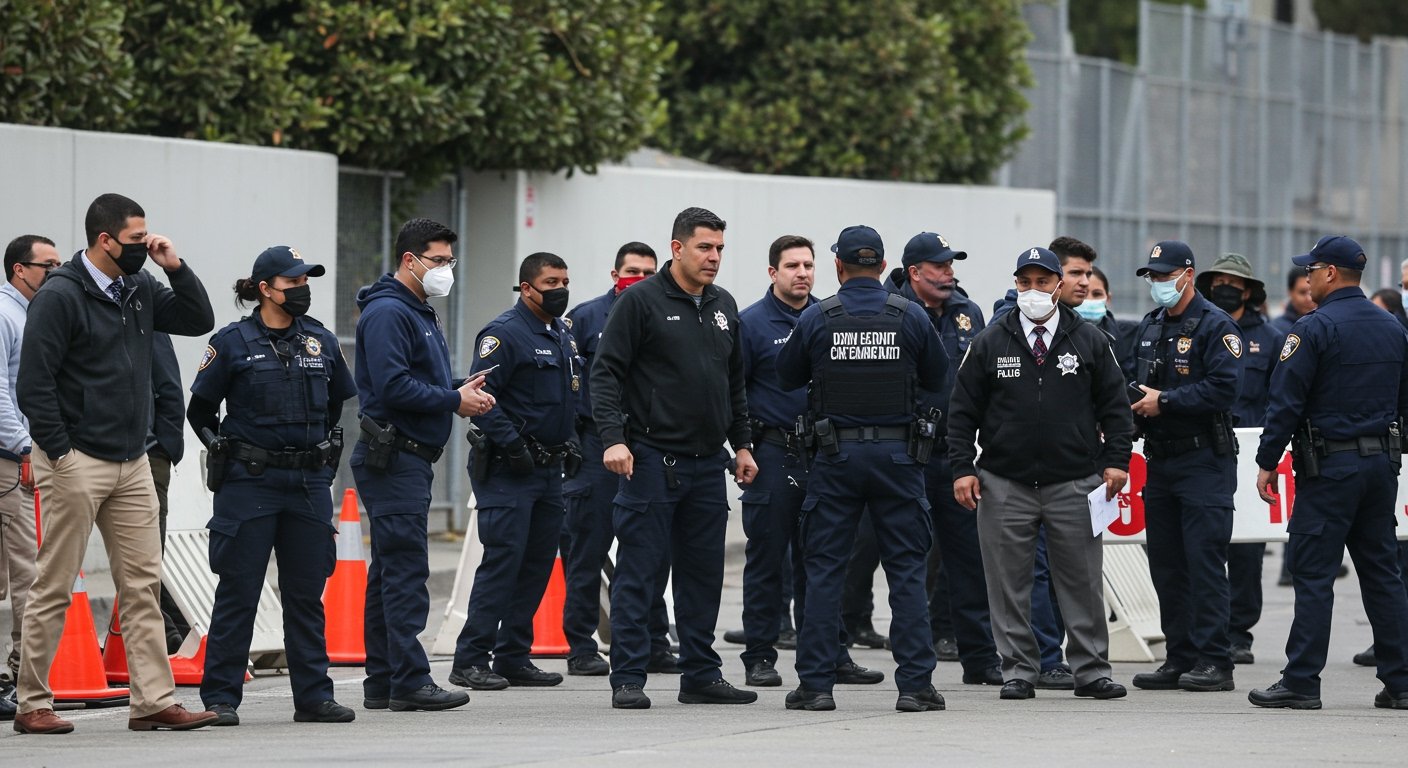LOS ANGELES – The Los Angeles Dodgers organization reportedly denied entry to federal immigration agents from U.S. Immigration and Customs Enforcement (ICE) who sought access to Dodger Stadium parking lots on Thursday, June 19. The incident occurred amid escalating immigration enforcement actions and intensifying raids across the Los Angeles area.
The baseball club confirmed the encounter in a statement posted on its social media platforms. The Dodgers stated that they had turned away ICE agents who had requested permission to access the extensive parking facilities surrounding the stadium.
Federal Agencies Offer Conflicting Accounts
Following the Dodgers’ public statement, ICE quickly issued a denial via a post on the social media platform X. The agency’s message was succinct and direct: “False. We were never there.”
However, the Department of Homeland Security (DHS) later offered a clarifying account that partially corroborated the presence of federal vehicles near the stadium grounds. DHS stated that vehicles belonging to Customs and Border Protection (CBP), another federal agency under its purview, were briefly present in the parking lot. The department was careful to note that the presence of the CBP vehicles was unrelated to any ongoing enforcement operation.
This discrepancy in accounts – the Dodgers reporting an interaction with ICE, ICE denying presence, and DHS confirming CBP presence – highlights the complex and often opaque nature of federal immigration activities during periods of heightened enforcement.
Raids Intensify Across Los Angeles
The incident at Dodger Stadium unfolds against a backdrop of increasing federal immigration enforcement activity throughout Los Angeles and broader Southern California. Reports of intensified raids have fueled protests and heightened tensions within immigrant communities and among advocacy groups.
This surge in enforcement is part of a broader initiative by the Trump administration to increase arrests and deportations nationwide. The administration has authorized significant resources towards this effort, including the deployment of thousands of National Guard troops and U.S. Marines to assist with border security and enforcement support in various capacities.
White House border czar Tom Homan confirmed the administration’s commitment to increased enforcement on Thursday, June 19 – the same day as the reported Dodger Stadium incident. Homan stated that worksite raids, specifically mentioning locations like farms and hotels, would resume immediately, signaling a widening scope for federal immigration operations beyond traditional border enforcement.
Local Response and Community Impact
The reported action by the Dodgers to deny entry to federal agents, regardless of the specific agency involved, has been viewed by some as a notable stance by a major civic institution amid the ongoing enforcement surge. The organization is reportedly planning to announce new support initiatives specifically aimed at immigrants affected by the recent federal raids, signaling a potential role in community response to the federal actions.
The situation has also drawn reactions from individuals associated with the team. Dodgers player Kiké Hernández reportedly expressed his frustration regarding the situation on Instagram, reflecting the broader impact and emotional toll that the heightened enforcement is having on residents and community members in Los Angeles.
Navigating Public Space and Federal Authority
The request by federal agents for access to the privately managed Dodger Stadium parking lots, though a large and publicly accessible space on game days, raises questions about the intersection of private property rights, public access, and federal law enforcement authority. While stadiums and their surrounding areas are often used for various public purposes, they remain under the control of the private entities that manage them, potentially limiting federal access without explicit permission or a warrant, depending on the circumstances.
The conflicting statements and the lack of detailed information from federal agencies about the specific intent or nature of their presence near the stadium have left key aspects of the incident open to interpretation, fueling public discussion and debate.
As immigration protests continue and federal enforcement remains elevated, the interaction at Dodger Stadium serves as a vivid example of how the national immigration debate is playing out in specific locations and involving diverse sectors of society, including major sports organizations.





